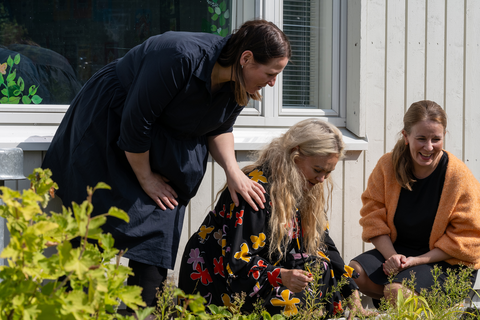Espoo’s early childhood education focuses on virtues

What can Plato, Aristotle, and classical virtues offer to modern early childhood education? More than you might think, according to educators working for the City of Espoo.
The word “virtue” may sound old-fashioned. However, virtues are not just echoes from ancient times; they are tools that help us live good and meaningful lives. They could be defined as characteristics that make us good. In early childhood education, virtues help us figure out how to be a good leader, colleague, or educator.
“Espoo’s Finnish-language early childhood education units have emphasised the importance of virtues for many years. We have reflected on how virtues help us foster a community where employees are happy, which in turn allows children to learn and thrive,” explains Early Childhood Education Specialist Jaana Luumi.
The aim is that jointly chosen virtues will cultivate a good collegial atmosphere at Espoo’s early childhood education units.
At Suviniityn päiväkoti, virtues help enhance the wellbeing of the entire community.
“We highlight virtues in many ways. Throughout the year, we focus on specific virtues, such as kindness or fairness. We discuss what these virtues mean in practice, in terms of actions and behaviour. We do this among our staff and with the children,“ says Sanna Saarelainen, Director of Suviniityn päiväkoti.
Virtues serve as guidelines that help people make choices and act in a way that contributes to the wellbeing of the entire community.
“Virtues encourage us to think about how we can be good to each other. Through virtues, children also learn how to be considerate and how their actions impact the whole community,” says Deputy Director Katja Pehkonen.
Leadership plays an important role in making virtues part of the operating culture.
“We need to continuously promote virtues so that they remain a natural part of everyday life,” Jaana Luumi explains.